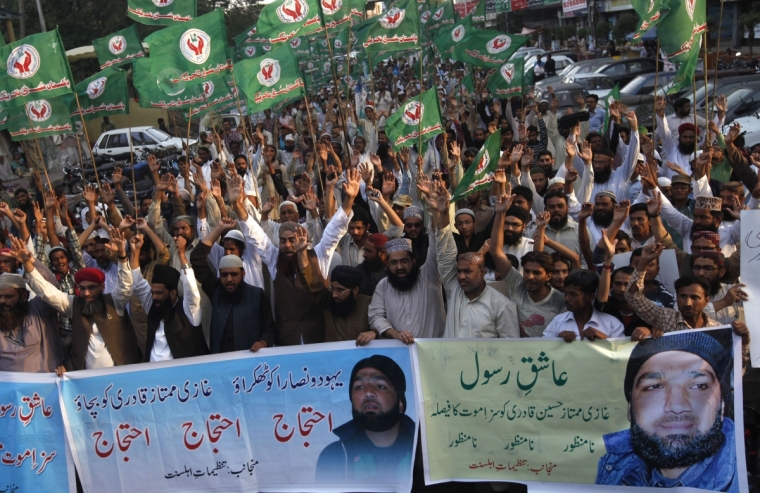International body looks into Pakistan's draconian blasphemy law

GENEVA (Christian Examiner) – Those accused of blasphemy in predominantly-Muslim Pakistan have little hope of being declared innocent, the International Commission on Jurists said in a 60-page report Nov. 4.
"Pakistan's blasphemy laws fly in the face of Pakistan's international legal obligations, including the duties to respect the rights of freedom of expression and freedom of religion and belief," Sam Zarifi, who directs ICJ's operations in Asia, said in a statement accompanying the report. "But even worse, those facing accusations of blasphemy suffer through trials that are often fundamentally unfair."
Yes, they still do support and within their judgment you can see that they're still okay with a blasphemy law existing on the books, but procedurally it looks like they want to make sure that the laws are no longer abused as widely as they currently are
Citizens in Pakistan can be charged with blasphemy for "misusing religious epithets, 'defiling' the Holy Quran, deliberately outraging religious sentiment, and using derogatory remarks in respect of the Prophet Muhammad," the report said.
However, accusations of blasphemy in Pakistan frequently result from personal differences and family disputes as easily as they do from religious squabbles. Once a charge is made, the legal process of being cleared or convicted can last up to three years and the burden of proof is on the accused. Bail is seldom offered and prolonged solitary confinement for the accused is commonplace, ICJ said in the report.
Other problems documented in the report include intimidation and harassment of defense counselors, demonstrated bias against defendants on the part of judges, failure to investigate the charges adequately and the prosecution of those mentally unfit to stand trial. Those found guilty of general blasphemy can be given long prison sentences. Those convicted of blaspheming Muhammad are executed.
The report also agrees with a recent finding of Pakistan's Supreme Court that the accused "suffer beyond proportion of repair." Even if cleared of the charges, the accused and their families are ostracized.
"It's time Pakistan and other countries got rid of these noxious laws, which continue to stifle freedom of expression and freedom of religion of belief, and instead promote extremism and intolerance," Zarifi said.
Pakistan's blasphemy laws have been the focus of international observers for many years, but especially since 2012 when the United Nations Special Rapporteur on the Independence of Judges and Lawyers found that the country's laws were often used by extremist groups to wage war against those who differed with them.
On Oct. 7, Pakistan's Supreme Court seemed to lean in the direction of modernity when it ruled that individuals could not take it upon themselves to impose a sentence on someone accused of blasphemy. A second justice said in his opinion that blasphemy laws were often misused in Pakistan and that the country should take steps to ensure the laws were not used "unjustly."
International Christian Concern, which monitors persecution worldwide, said the development was a welcome one.
"The fact that the highest court in the land feels safe enough or feels comfortable enough to say, 'No, this needs to be reformed; we need to set safeguards to make sure this isn't happening'– is really, really positive," William Stark, who oversees ICC's operations in South Asia, told One News Now.
"Yes, they still do support and within their judgment you can see that they're still okay with a blasphemy law existing on the books, but procedurally it looks like they want to make sure that the laws are no longer abused as widely as they currently are," Stark said.